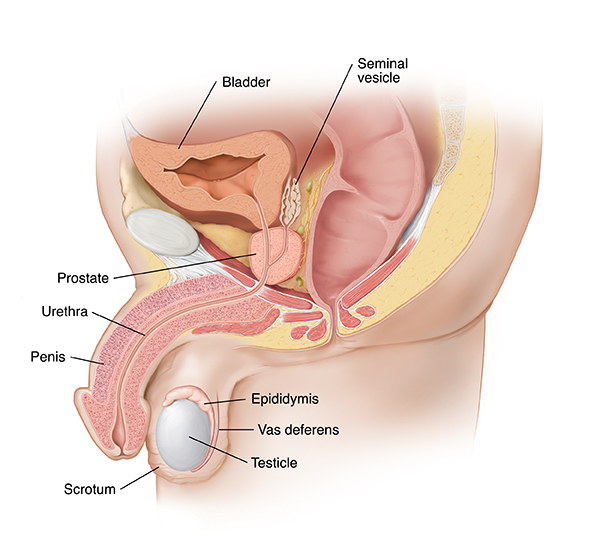Male Reproductive Anatomy
The reproductive system is the part of the body involved in sexual function. Below are parts of the reproductive anatomy for people who are assigned male at birth.
Penis. This is the external male reproductive organ. The penis is made up of spongy tissue that holds blood. When the penis is soft, blood flows in and out of the tissue. During sexual excitement, extra blood flows into the tissue. The extra blood makes the tissue swell. The penis then becomes hard (erect). This makes it firm enough to have sex.
Urethra. This transports urine and semen. When you have an orgasm, fluid called semen is ejaculated out of the urethra.
Testicles (testes). These are glands that make sperm (reproductive cells) and hormones.
Scrotum. This is the skin-covered sac that hangs on the outside of the body. The scrotum contains the testes.
Epididymis. This is a coiled tube that holds sperm while they mature.
Vas deferens. This a coiled tube that carries sperm from the epididymis to the penis. It is also called the sperm duct.
Seminal vesicles. These are two glands that sit behind the bladder, which is the organ that holds urine. The seminal vesicles secrete a substance that nourishes sperm cells.
Prostate. This gland makes a fluid that is part of semen.

After sexual arousal, sperm move away from the epididymis through the vas deferens. Along the way, the sperm mix with fluids made by the seminal vesicles and prostate gland to form semen. The semen helps nourish sperm and carry them along.